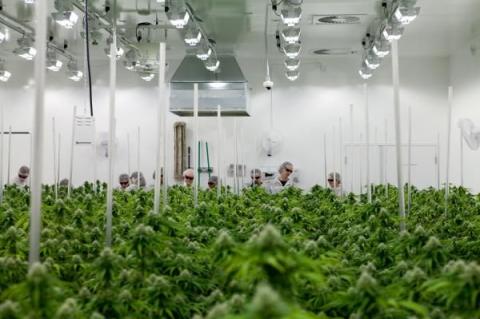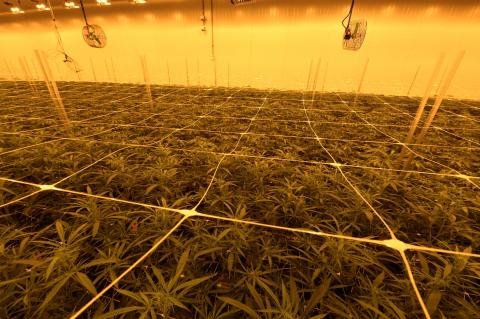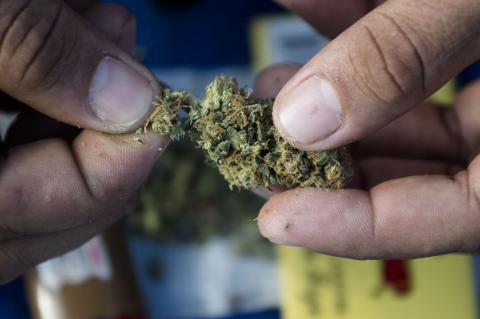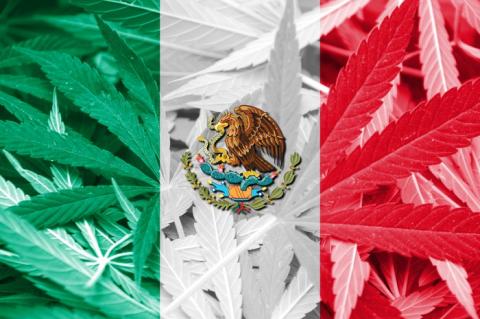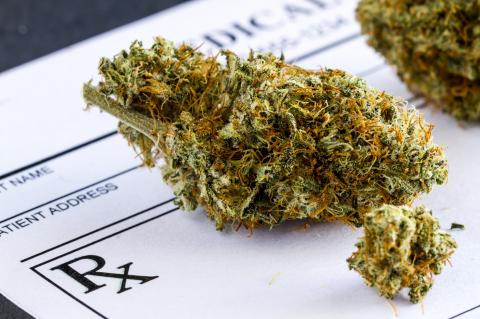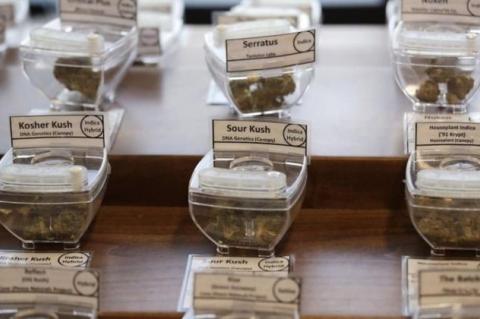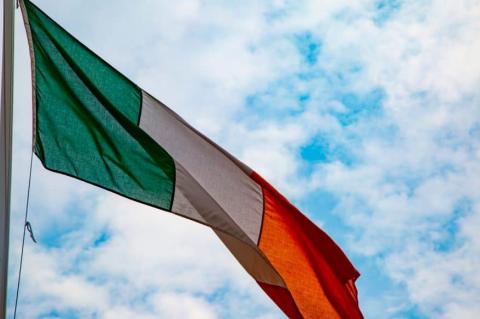Ever since Canada became the first major country to legalize marijuana for adults a year ago, other nations have been paying attention.
The small South American nation of Uruguay was the first to legalize marijuana for adults. New Zealand, Luxembourg and Mexico are among those that have looked to Canada for guidance or lessons, while Russia has chastised it for its “barefaced” flouting of international anti-drug treaties.
Here’s a look at how Canada’s experiment is playing out internationally and where the next attempts at legalization are coming:
United States
States continue to flout federal prohibition and legalize marijuana within their borders, arguing that the nation’s war on pot has drained law enforcement resources, had a disparate impact on minorities and failed to curb the drug’s popularity.
Thirty-three states and Washington, D.C., have now legalized cannabis for medical or recreational use, with Michigan and Illinois the most recent of 11 states to OK recreational sales.
Last month, the U.S. House of Representatives, with significant bipartisan support, passed a bill that would grant legal marijuana businesses access to banking while sheltering financial institutions from prosecution for handling marijuana-linked money. That would clear up a serious headache for the industry. Many pot businesses have had to conduct sales and pay vendors or taxes in cash, making them robbery targets and also making it harder to detect theft, tax evasion and money laundering.
Advocates say the vote was a sign the U.S., long the world’s leading proponent of the drug war, is ready for comprehensive cannabis reform.
Luxembourg
The small nation of about 615,000 people has decriminalized possession of small amounts of the drug, and since January it has allowed medical use. Now it is aiming to become the first country in Europe to legalize and regulate recreational sales to adults, a development that could lead to broader cannabis regulation in the European Union.
The government has announced that it intends to legalize sales, with Health Minister Etienne Schneider recently telling the Euronews television network that the country’s cannabis legislation will be “inspired by the Canadian model.” Officials estimate that it will take about two years before legal sales begin.
While Schneider said Luxembourg’s legalization won’t force the hand of other EU nations, he said he intended to speak with counterparts in Germany, France and Belgium, the countries that border Luxembourg, and encourage them to explore the possibility of regulating the drug. In the meantime, Schneider said, Luxembourg will respect their prohibitions by limiting sales to Luxembourg residents.
Mexico
Mexico’s Supreme Court ruled last year that the government’s ban on the personal use of marijuana was unconstitutional, the culmination of a series of rulings against prohibition since 2015. That’s helped put Mexico on a path toward full legalization. Before he was even sworn in, President Andrés Manuel López Obrador sent emissaries to Canada to discuss its approach to cannabis.
Things are moving quickly now, with the ruling party’s Senate leader saying the chamber intends to vote on a new legalization measure by the end of this month, following dozens of forums in which politicians, advocates and voters have worked out what a regulated system might look like.
“The importance of Canada having regulated is that it broke the taboo on an international level in a way that Uruguay did not,” said Zara Snapp, a drug policy reform advocate in Mexico City. “For us, what it taught us is there is a path, and that path is possible without there being any apocalyptic sanctions from international bodies.”
That said, after severe drug-war violence, Mexico’s legalization is not likely to mirror Canada’s, where a few massive corporations have dominated production and more artisanal growers have largely been shut out. For example, lawmakers are considering giving greater licensing privileges to indigenous groups, she said.
“We need it to have a way bigger impact than just tax revenue or stock exchange values,” Snapp said. “The things that indicate success in other jurisdictions are not going to be the same indicators of success for us.”
New Zealand
New Zealand will hold a referendum next year on whether to legalize and regulate the adult use of marijuana — the first country to put legalization to a nationwide vote. Officials are still hammering out the exact language, but in a speech last month Justice Minister Andrew Little said the measure would include a minimum purchase and use age of 20; a ban on using the drug in public; limits on home growing, marketing and advertising; a public education program; and licensing requirements for the entire supply chain.
“The approach we are taking is that in the event of a ‘Yes’ vote in the referendum, it will be necessary to have a regime that affords maximum control, so that the obvious risks can be minimized,” Little told a drug policy symposium last month.
Whether the vote will be binding is a matter of dispute. The three parties that make up New Zealand’s governing coalition have vowed to honor it, but legislation would be required to effect legalization, and the center-right party National has not made clear whether it will support the bill.
Advocates have expressed concern about social justice in New Zealand’s legalization efforts as well, suggesting that its model could strike a balance between Uruguay, where access to cannabis is tightly controlled at a small number of pharmacies, and the more commercial approach taken by some Canadian provinces and U.S. states.
Russia
Canada’s legalization hasn’t been uniformly well received. Russia’s representative to the international Commission on Narcotic Drugs lamented the “barefaced” and “blatant violation by Canada of its international obligations” under anti-drug treaties.
“There exists real danger that some other countries may follow the example set by Canada, which would lead to the erosion and even dismantling of the whole international legal foundation of our fight against narcotic drugs,” Mikhail Ulyanov said.
As recently as this month, Russia’s mission to the UN tweeted: ”#Legalization of narcotic drugs, including cannabis, for recreational purposes constitutes a grave violation of the international law.”
But Russia may have ulterior motives in criticizing Canada, given what many world leaders consider to be its own flouting of international law in annexing Crimea, among other issues.
“Russia has its reasons for trying to call out a country like Canada on its commitment to international rule of law,” said John Walsh, who monitors global drug policy with the advocacy group Washington Office on Latin America. “They delight in being able to say Canada is athwart its obligations. But I don’t think Russia’s bluster is going to keep other countries from moving forward.”



